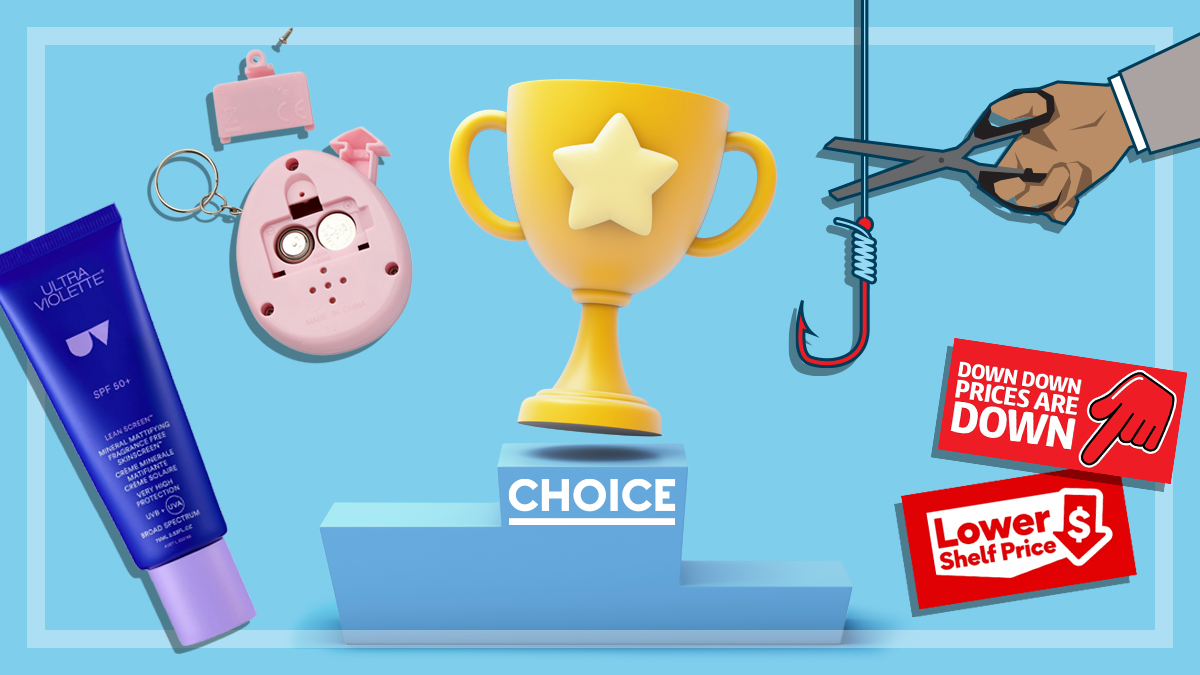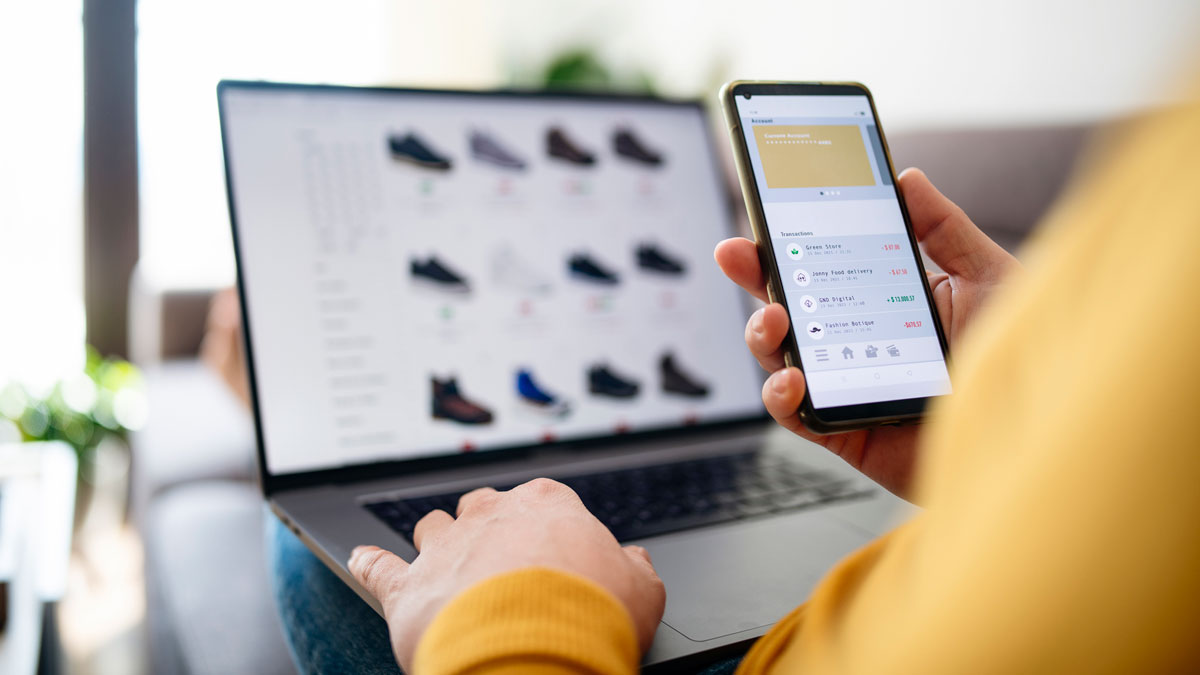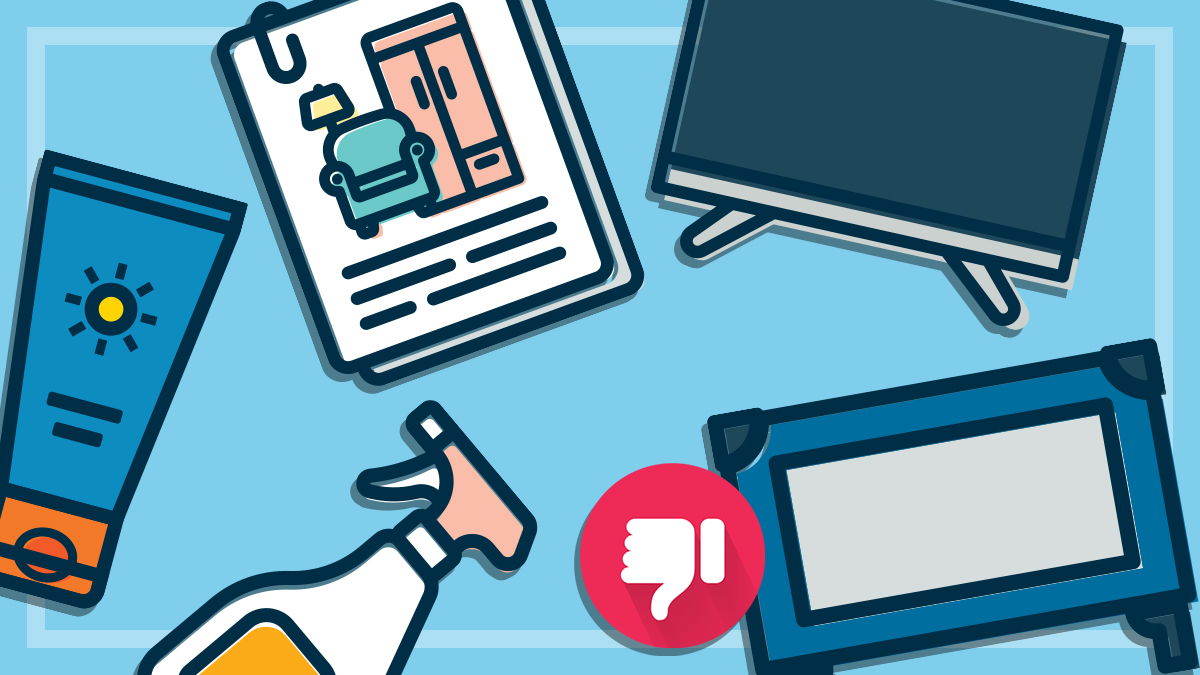Get our independent lab tests, expert reviews and honest advice.
10 ways to protect yourself from buying unsafe products
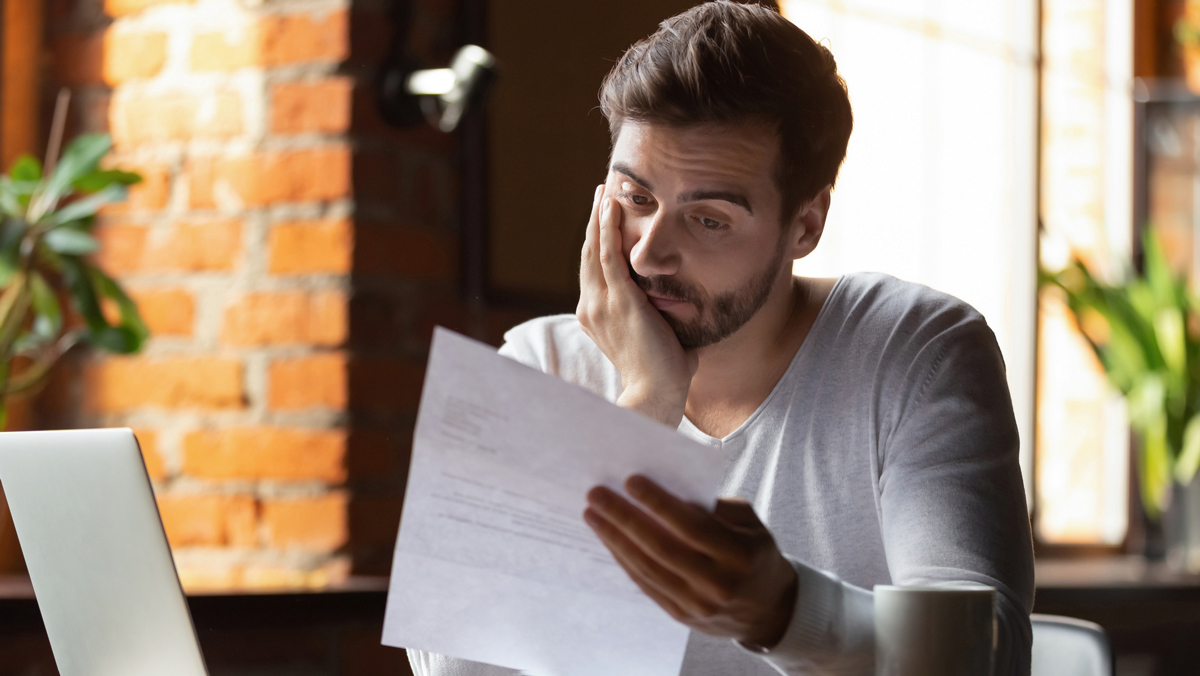
At CHOICE, we believe the onus for staying safe shouldn’t just be on the consumer. Australia needs to introduce a general safety provision to ensure everyone is protected from unsafe products by law.
On this page:
- 1. Buy local
- 2. Check for mandatory safety standards
- 3. Check for recalls
- 4. Don't always believe online reviews
- 6. Be careful buying second-hand children's products
- 7. Read and follow manufacturer instructions
- 8. Be wary of being an early adopter
- 9. Check the brand
- 10. Report unsafe products
But while we wait for government action, here are 10 ways to safeguard yourself against buying a product that puts you or a family member at risk.
1. Buy local
If something goes wrong with what you’ve bought, it’s easier to contact the business to make a complaint or arrange a refund if they’re based in the country.
Even though the Australian Consumer Law applies to any business that sells goods in Australia, if they’re located overseas the reality is it can be very difficult for Australian authorities to intervene if there’s an issue.
Using a credit card or even PayPal may offer some buyer protections if something’s defective or even counterfeit.
2. Check for mandatory safety standards
Mandatory safety standards apply to certain high-risk products sold in Australia. This kind of standard is developed by the ACCC and there are penalties for supplying products that don’t comply with them.
Voluntary standards are not an automatic legal requirement but instead represent best practice. Standards of this kind are developed by non-government bodies such as Standards Australia.
The 45 categories of products covered by mandatory standards include items like cots, infant car restraints and prams. When we test these products in our labs we make sure they comply with the relevant standard and we sometimes find that they fail, despite manufacturers claims to the contrary.
Australian Consumer Law applies to any business that sells goods in Australia [but] if they’re located overseas … it can be very difficult for Australian authorities to intervene
We also often include tests that go beyond the mandatory standard when we think there are safety issues that aren’t captured there. That’s why we always recommend you check our reviews to be sure that products are safe to use.
And because there are so many categories that don’t have mandatory safety standards, there are many products sold in Australia that aren’t required to include safety features or even information. Another reason why you should check our tests before you buy.
3. Check for recalls
Knowing if something you’re about to buy is subject to a recall or a ban could prevent an unsafe product landing in your home.
To avoid the risk and hassle of dealing with an unsafe product, always check with Product Safety Australia.
It’s worth knowing though that even this isn’t a failsafe protection against unsafe products. The product recall process could be improved, which is why CHOICE is calling for the introduction of a general safety provision.
4. Don’t always believe online reviews
You can’t always believe everything you read online about a product. Online reviews can be fake, published to inflate the positive view of something.
People can also be paid to remove negative reviews (this is not a lawful practice), leaving only the praise and not the genuine criticisms of a product.
CHOICE, along with consumer watchdog the ACCC, have been highlighting the issue of fake or unreliable reviews for some years. The ACCC has put together a consumer guide on online product reviews.
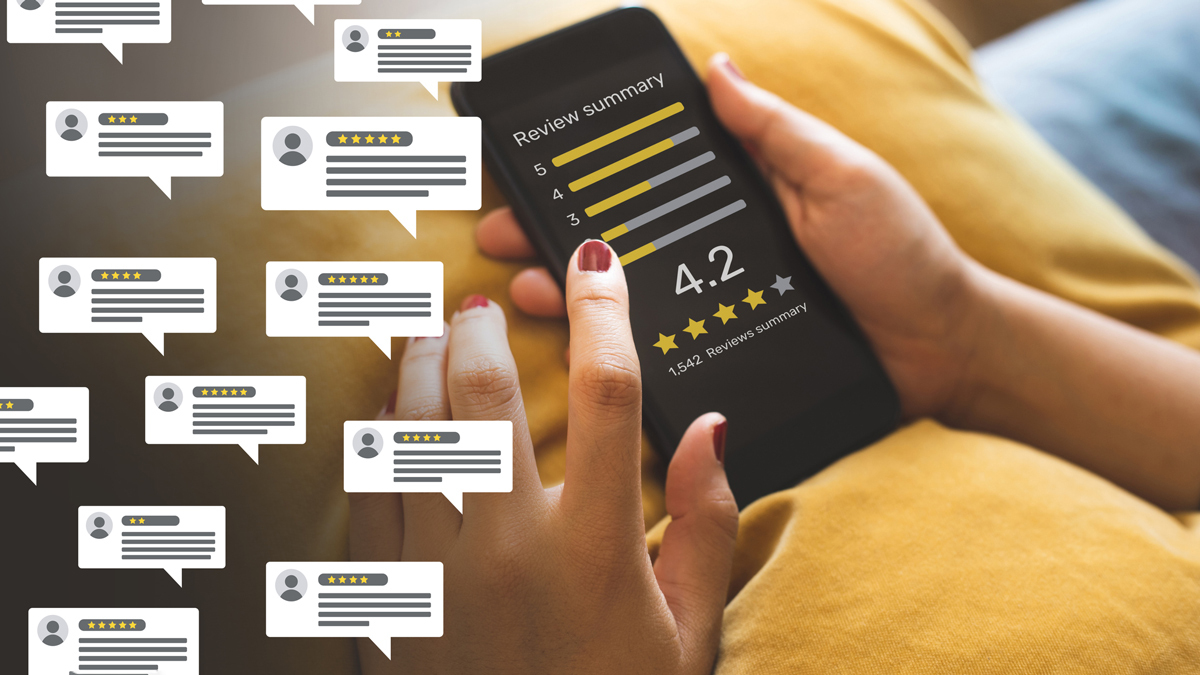
5. Check CHOICE reviews
You may not be able to believe other online reviews, but you can trust CHOICE reviews. We exist only to fight for fair, safe and just markets, not to make a profit for owners or shareholders. Our reviews are independent, so you can rely on them for robust, impartial advice and recommendations.
Recalled and dangerous kids’ products can end up on online marketplaces
Our testing will even find safety risks in products that pass mandatory standards. Fridges, electronics, baby products, food and more – always look for a product review or test before you buy.
CHOICE has built its reputation on rigorous, scientific testing so you can buy with confidence.
6. Be careful buying second-hand children’s products
Having a baby generally means needing to outlay money on a lot of new things, and that doesn’t seem to slow down as infants grow. As children go through different stages, there’ll always be something new you need to buy.
Buying second-hand is a way to save some money and reuse things that still have life in them, but there are some children’s products that are best bought new, including cots, mattresses and child car seats.
Also keep in mind that recalled and dangerous kids’ products can end up on online marketplaces, as sellers are unaware of the dangers. Although the ACCC has been working to improve product safety across online sites, it’s still best to be cautious.
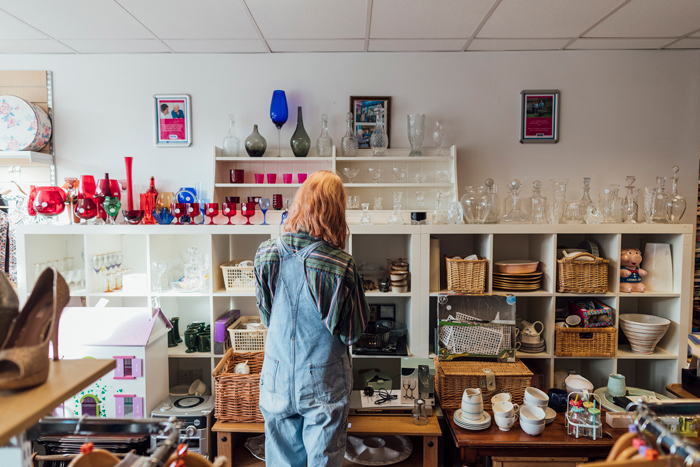
7. Read and follow manufacturer instructions
Even a ‘safe’ product can turn deadly if you don’t follow the instructions about how to use it, clean it, apply safety measures and so on.
When it comes to children’s products, it’s particularly important to follow assembly and usage instructions.
So before you toss away the operating manual, familiarise yourself with any dos and don’ts and with any manufacturer recommendations.
8. Be wary of being an early adopter
We’re all familiar with the images of tech fans lining up to buy the new iPhone on the day it’s released.
While having the most up-to-date device may generate a certain amount of prestige in some quarters, it isn’t always a good idea. New products that are untried and untested in the real world can come with problems.
For some products it could be worth waiting a while before buying to make sure it lives up to expectations.
9. Check the brand
Buying unbranded products or ones with unfamiliar names, particularly on online marketplaces, might seem like a way to save a few dollars. But this could prove a costly decision if they’re unsafe.
Be on the lookout for fakes and counterfeits that may trick you into thinking you’re buying the real thing.
10. Report unsafe products
Our last tip is more about helping others stay safe. If the unfortunate happens and you find yourself with a product you believe is not safe to be used, you can report it to Product Safety Australia.
Why Australia needs a general safety provision
It may be surprising to learn that In Australia it’s not illegal to sell unsafe products. This means that when you buy a product, its safety is not guaranteed.
Gail Greatorex, owner and principal of the consultancy Product Safety Solutions, has almost 20 years’ experience in product safety compliance with the ACCC.
She says that consumers need to know that most products aren’t checked by government agencies before they go on the market.
“I’d like to see more regulators working with industry associations to capitalise on mutual safety goals,” says Greatorex.
Consumers need to know that most products aren’t checked by government agencies before they go on the market
A 2019 government review found the current product safety system to be slow to respond to prevent unsafe products entering the market or to address unsafe products – leaving consumers at potential risk.
The ACCC estimates the cost to the economy of injury and death of unsafe products at $5 billion a year.
“More effort should be directed to prevention and there’s a good economic basis for doing so,” says Greatorex.
In the UK, businesses must not supply a product unless it is safe, a requirement that is stipulated in a product safety law.
CHOICE has been pushing for a general safety provision (GSP) for some years. The ACCC is supportive, but as of 2021 the government had yet to commit to a timeline to enact it.
Greatorex notes that a key element in product safety policy is the message that’s conveyed to the business community.
“Without a GSP, suppliers of most products are far less aware of safety and have far less incentive to give safety priority over business costs and other practical factors.”


